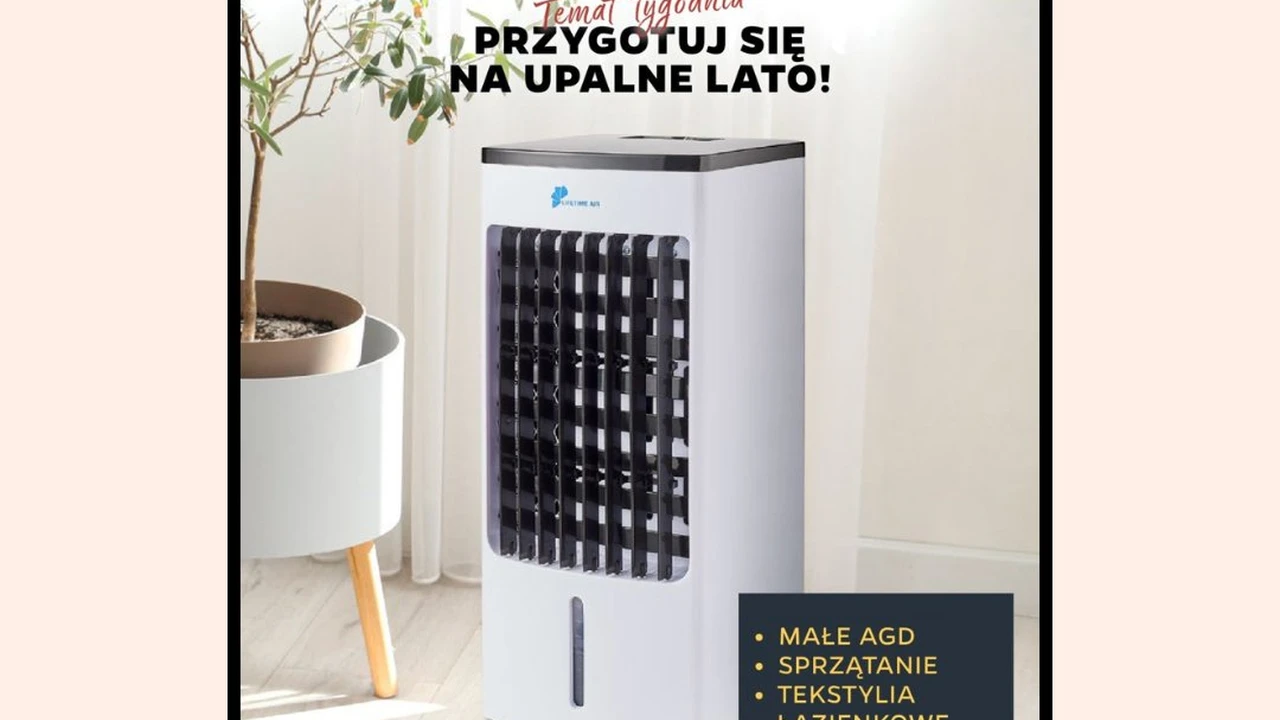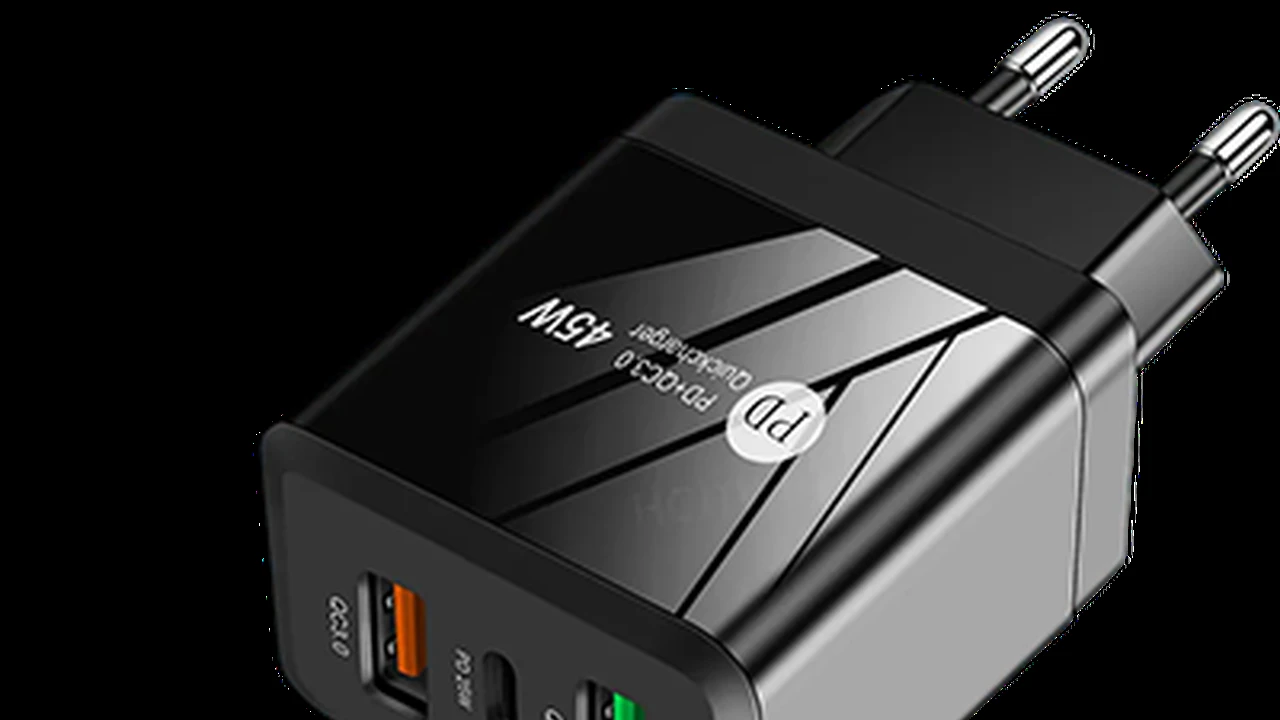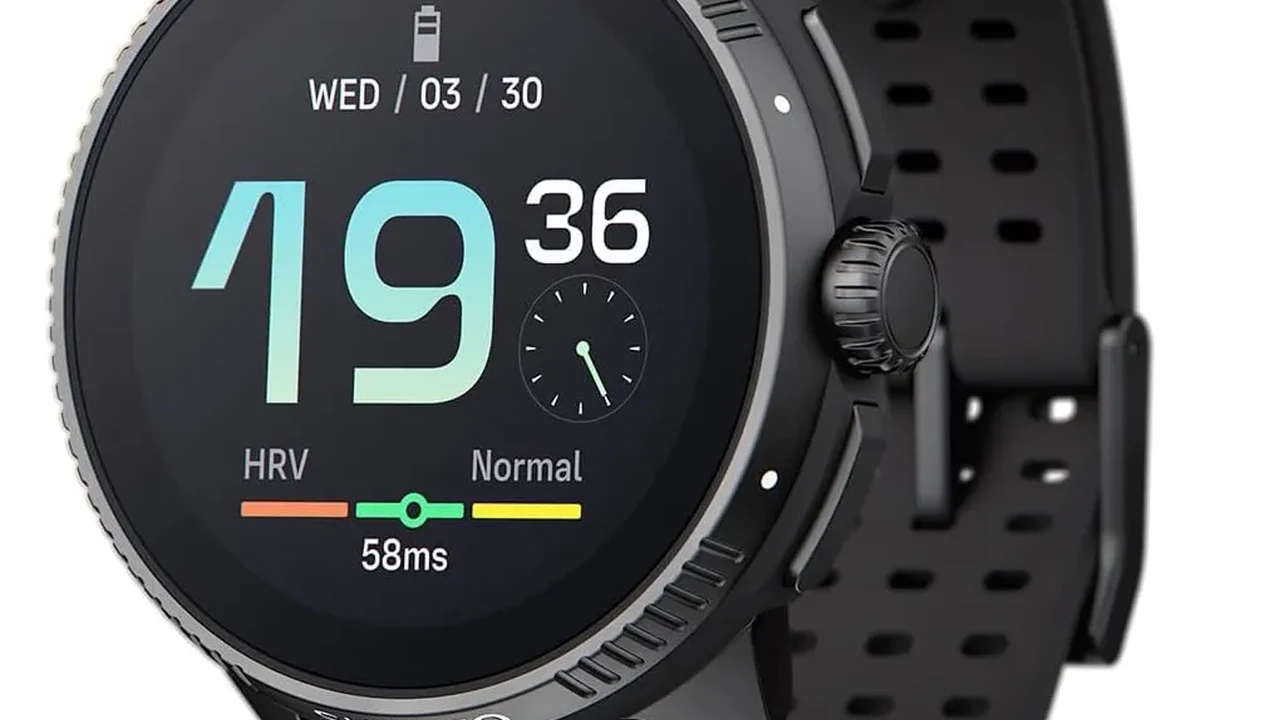Top Smartwatches for Sleep Tracking and Analysis
Improve your sleep quality with the best smartwatches for sleep tracking. Analyze your sleep patterns and gain valuable insights.

Top Smartwatches for Sleep Tracking and Analysis
Hey there, sleep seekers! Ever wonder what really goes on when you close your eyes? Smartwatches aren't just for counting steps or checking notifications anymore. They've become incredibly powerful tools for understanding one of the most vital aspects of our health: sleep. Getting enough quality sleep is crucial for everything from your mood and energy levels to your long-term health. But how do you know if you're actually getting good sleep? That's where sleep tracking smartwatches come in. They can give you a detailed look at your sleep cycles, disturbances, and overall sleep quality, helping you make informed changes to improve your nightly rest.
In this comprehensive guide, we're diving deep into the world of sleep tracking smartwatches. We'll explore what makes a great sleep tracker, what kind of data you can expect to see, and most importantly, we'll recommend some of the top models on the market right now. Whether you're a restless sleeper, an insomniac, or just curious about your nocturnal habits, there's a smartwatch out there that can help you unlock the secrets of your sleep.
Understanding Sleep Tracking Smartwatch Technology and Metrics
Before we jump into specific models, let's talk about how these devices actually track your sleep and what all those fancy metrics mean. Most smartwatches use a combination of sensors to monitor your sleep. The primary ones are accelerometers, which detect movement, and optical heart rate sensors, which measure your pulse. Some advanced models also include blood oxygen (SpO2) sensors and even electrodermal activity (EDA) sensors.
Sleep Stages Explained Light Deep REM Sleep Cycles
Your sleep isn't just one big block of unconsciousness. It's divided into distinct stages, and a good sleep tracker will differentiate between them:
- Awake: Pretty self-explanatory, this is when you're not sleeping.
- REM (Rapid Eye Movement) Sleep: This is the stage where most dreaming occurs. It's crucial for cognitive functions like memory consolidation and emotional processing. Your heart rate and breathing become more irregular during REM.
- Light Sleep: This is the first stage of non-REM sleep. It's a transition period where your body begins to relax, and your heart rate and breathing slow down. It's important for mental and physical restoration.
- Deep Sleep (Slow-Wave Sleep): This is the most restorative stage of sleep. Your body repairs and regrows tissues, builds bone and muscle, and strengthens the immune system. It's the hardest stage to wake up from.
A good sleep tracker will show you how much time you spend in each of these stages, giving you an idea of your sleep architecture. Ideally, you want a healthy balance of all stages, especially deep and REM sleep.
Key Sleep Metrics Heart Rate Variability SpO2 Disturbances
Beyond sleep stages, smartwatches provide a wealth of other data points:
- Total Sleep Duration: How long you actually slept. Simple, but essential.
- Sleep Score: Many apps provide an overall sleep score, which is a composite metric based on duration, quality, and consistency. It's a quick way to gauge your night's rest.
- Sleep Consistency: How regular your bedtime and wake-up times are. Irregular sleep schedules can negatively impact your health.
- Restlessness/Awakenings: How many times you woke up or were restless during the night. Even brief awakenings can disrupt your sleep quality.
- Heart Rate During Sleep: Your resting heart rate can indicate your overall fitness and recovery. A higher-than-usual heart rate during sleep might suggest stress or illness.
- Heart Rate Variability (HRV): This is the variation in time between your heartbeats. A higher HRV generally indicates better recovery and resilience to stress. Some advanced trackers use HRV to assess your readiness for the day.
- Blood Oxygen Saturation (SpO2): Measures the oxygen levels in your blood. Low SpO2 during sleep can be a sign of sleep apnea or other respiratory issues.
- Breathing Rate: The number of breaths you take per minute. Changes in breathing rate can also indicate sleep disturbances.
- Skin Temperature: Some smartwatches track skin temperature, which can fluctuate during sleep and potentially indicate illness or menstrual cycles.
Understanding these metrics can help you identify patterns and potential issues, allowing you to make lifestyle adjustments or consult a doctor if needed.
Top Smartwatches for Comprehensive Sleep Tracking and Insights
Alright, let's get to the good stuff! Here are some of the best smartwatches currently available that excel in sleep tracking, offering detailed insights and actionable advice.
Apple Watch Series 9 Best for iPhone Users Sleep Stages
Price: Starting around $399 USD
If you're an iPhone user, the Apple Watch Series 9 is arguably the most seamless and comprehensive sleep tracker you can get. Apple has significantly improved its native Sleep app over the past few generations. It automatically detects when you fall asleep and wake up, tracks your sleep stages (Awake, REM, Core/Light, Deep), and shows you your sleep trends over time. You can set sleep schedules, and the watch will remind you to wind down, dim your iPhone screen, and even track your respiratory rate during sleep.
Key Sleep Features:
- Automatic sleep detection and stage tracking.
- Sleep schedules and wind-down features.
- Respiratory rate tracking.
- Sleep trends and consistency insights in the Health app.
- Integration with third-party sleep apps like AutoSleep or Pillow for even deeper analysis.
User Scenario: Perfect for someone already deep in the Apple ecosystem who wants a reliable, easy-to-use sleep tracker that integrates perfectly with their other health data. It's great for understanding your basic sleep patterns and making small adjustments to your routine.
Samsung Galaxy Watch 6 Best for Android Users Advanced Metrics
Price: Starting around $299 USD
For Android users, the Samsung Galaxy Watch 6 (and the Classic version) offers some of the most advanced sleep tracking features. Samsung Health provides incredibly detailed sleep analysis, including sleep stages, snoring detection (via your phone's microphone), and blood oxygen levels. What sets Samsung apart is its personalized Sleep Coaching program, which analyzes your sleep patterns over a week and assigns you a 'sleep animal' type, then provides tailored advice and missions to improve your sleep habits.
Key Sleep Features:
- Detailed sleep stage analysis (Awake, REM, Light, Deep).
- Snoring detection and recording.
- Continuous SpO2 monitoring during sleep.
- Personalized Sleep Coaching program with actionable insights.
- Skin temperature tracking (on Watch 6 Classic).
User Scenario: Ideal for Android users who want a deep dive into their sleep data and are looking for personalized guidance to improve their sleep. The Sleep Coaching feature is a real standout for those committed to making changes.
Garmin Venu 3 Best for Fitness Enthusiasts Recovery Insights
Price: Starting around $449 USD
Garmin is renowned for its fitness tracking, and its sleep tracking is equally robust, especially for those focused on recovery and performance. The Venu 3 offers comprehensive sleep stage tracking, SpO2 monitoring, and respiration rate. But where Garmin truly shines is with its 'Body Battery' metric, which uses sleep quality, activity, and stress to estimate your energy reserves. Good sleep significantly recharges your Body Battery, giving you a clear indication of how well you're recovering.
Key Sleep Features:
- Advanced sleep stage tracking (Light, Deep, REM, Awake).
- Pulse Ox (SpO2) monitoring during sleep.
- Respiration rate tracking.
- Body Battery energy monitoring.
- Sleep Score and personalized insights.
- Nap detection and logging.
User Scenario: Perfect for athletes, fitness enthusiasts, or anyone who wants to understand how their sleep impacts their daily energy levels and recovery. The Body Battery is an incredibly intuitive way to visualize your readiness.
Fitbit Sense 2 Best for Stress Management Sleep Profiles
Price: Starting around $299 USD
Fitbit has long been a leader in sleep tracking, and the Sense 2 continues that tradition with a strong focus on holistic health, including stress management. It provides detailed sleep stage breakdowns, estimated oxygen variation, and skin temperature. Its unique 'Sleep Profile' feature analyzes your sleep patterns over a month and assigns you one of six animal archetypes, providing insights into your habits and how to improve them. The Sense 2 also features an EDA sensor for stress tracking, which can indirectly impact sleep.
Key Sleep Features:
- Detailed sleep stages (Awake, REM, Light, Deep).
- Estimated oxygen variation.
- Skin temperature tracking.
- Personalized Sleep Profile with monthly insights.
- Smart Wake alarm.
- EDA sensor for stress management, which can affect sleep.
User Scenario: Great for individuals who want a comprehensive view of their sleep and how it relates to their overall well-being, especially stress levels. The Sleep Profile offers a fun and insightful way to understand long-term trends.
Withings ScanWatch 2 Best for Medical Grade Health Tracking
Price: Starting around $349 USD
If medical-grade accuracy and long battery life are your top priorities, the Withings ScanWatch 2 is an excellent choice. While it looks like a traditional analog watch, it's packed with advanced health sensors. It offers clinical-grade ECG for AFib detection, a high-accuracy SpO2 sensor for sleep apnea detection, and continuous body temperature tracking. Its sleep tracking provides detailed insights into sleep stages, disturbances, and breathing irregularities, making it a powerful tool for identifying potential sleep disorders.
Key Sleep Features:
- Medical-grade SpO2 for sleep apnea detection.
- Advanced sleep stage analysis.
- Breathing disturbances tracking.
- Continuous body temperature tracking.
- Long battery life (up to 30 days).
- Silent alarm.
User Scenario: Best for those who prioritize health monitoring and want a device that can potentially flag serious sleep-related health issues like sleep apnea. Its discreet design also appeals to users who prefer a traditional watch aesthetic.
Comparing Sleep Tracking Smartwatches Features and Value
Choosing the right sleep tracking smartwatch depends on your specific needs and priorities. Let's break down some key comparison points:
Accuracy and Reliability Sleep Data Validation
While no consumer wearable is a medical device (unless specified, like the Withings ScanWatch's ECG), the accuracy of sleep stage detection and other metrics has significantly improved. Devices from Apple, Samsung, Garmin, and Fitbit generally offer reliable data. Look for consistent readings over time rather than focusing on minute-by-minute fluctuations. Some companies, like Withings, have gone through clinical validation for certain features, which adds a layer of trust.
Battery Life Impact on Continuous Sleep Tracking
This is a big one for sleep tracking. You need a watch that can last through the night and ideally for several days without needing a charge. Apple Watch and Samsung Galaxy Watch typically require daily charging, which means you need to remember to charge them before bed or in the morning. Garmin and Withings watches often boast multi-day or even multi-week battery life, making continuous sleep tracking much more convenient.
App Ecosystem and Data Presentation User Experience
The data is only useful if you can understand it. Each brand has its own companion app (Apple Health, Samsung Health, Garmin Connect, Fitbit app, Withings Health Mate). Evaluate which app presents the data most clearly and offers actionable insights. Some apps provide more personalized coaching, while others focus on raw data. Consider if you prefer a simple overview or a deep dive into every metric.
Additional Health Features Beyond Sleep Tracking
Most smartwatches are multi-functional. Consider what other health and fitness features are important to you:
- Fitness Tracking: Step counting, calorie burn, workout tracking.
- GPS: For outdoor activities.
- ECG: For detecting atrial fibrillation.
- Stress Tracking: Via EDA sensors or HRV.
- NFC Payments: For contactless payments.
- Smart Features: Notifications, calls, app support.
The more features, generally the higher the price, so balance your needs with your budget.
Comfort and Design Wearing a Smartwatch to Bed
You'll be wearing this device all night, so comfort is paramount. Consider the size, weight, and material of the watch and its band. Some people find larger watches uncomfortable for sleep. Look for lightweight designs and soft, breathable bands. The aesthetic also matters – do you prefer a sporty look, a classic watch design, or something more minimalist?
Maximizing Your Sleep Tracking Smartwatch Benefits and Tips
Having a sleep tracking smartwatch is just the first step. To truly improve your sleep, you need to use the data effectively. Here are some tips:
Establish a Consistent Sleep Schedule Regularity is Key
Your smartwatch will highlight inconsistencies in your sleep. Try to go to bed and wake up at roughly the same time every day, even on weekends. This helps regulate your body's natural sleep-wake cycle (circadian rhythm).
Create a Relaxing Bedtime Routine Wind Down Effectively
About an hour before bed, start winding down. This could involve reading a book, taking a warm bath, meditating, or listening to calming music. Avoid screens (phones, tablets, TVs) as the blue light can interfere with melatonin production.
Optimize Your Sleep Environment Dark Quiet Cool
Make your bedroom a sanctuary for sleep. Ensure it's dark (use blackout curtains if needed), quiet (earplugs or white noise machine if necessary), and cool (around 65°F or 18°C is often recommended).
Analyze Your Sleep Data Identify Patterns and Triggers
Don't just look at your sleep score. Dive into the details. Do you consistently get less deep sleep on nights you drink alcohol? Is your REM sleep lower when you're stressed? Look for correlations between your daily activities and your sleep quality. Many apps offer weekly or monthly summaries that can help you spot trends.
Listen to Your Body and Adjust Habits Accordingly
The data from your smartwatch is a guide, not a strict rulebook. If your watch says you had a bad night, but you feel great, trust your body. However, if you consistently feel tired despite thinking you're sleeping well, the data might be revealing something important. Use the insights to experiment with changes to your routine and see what works best for you.
Consider Professional Advice for Persistent Sleep Issues
If your smartwatch consistently shows significant sleep disturbances (e.g., very low SpO2, frequent awakenings, or very little deep sleep) and you're experiencing daytime fatigue, excessive snoring, or other concerning symptoms, it's crucial to consult a healthcare professional. A smartwatch can be a great tool for identifying potential issues, but it's not a substitute for medical diagnosis or treatment.
Ultimately, a sleep tracking smartwatch can be a powerful ally in your quest for better sleep. By providing objective data and insights into your nocturnal habits, these devices empower you to make informed decisions and take control of your sleep health. Sweet dreams!
:max_bytes(150000):strip_icc()/277019-baked-pork-chops-with-cream-of-mushroom-soup-DDMFS-beauty-4x3-BG-7505-5762b731cf30447d9cbbbbbf387beafa.jpg)






